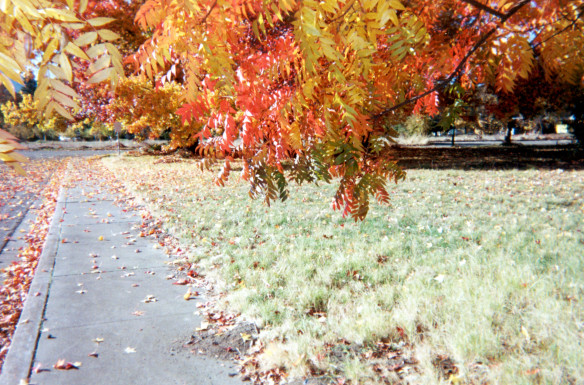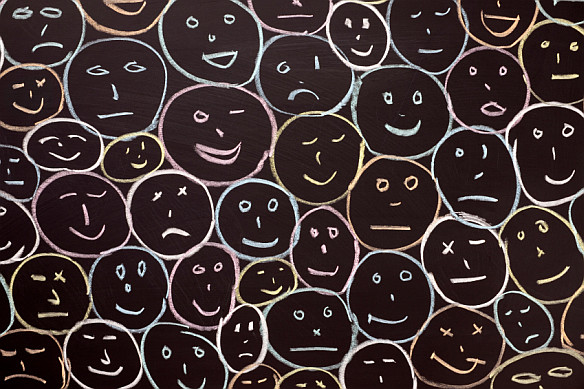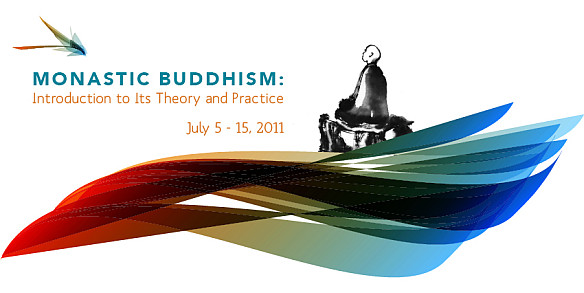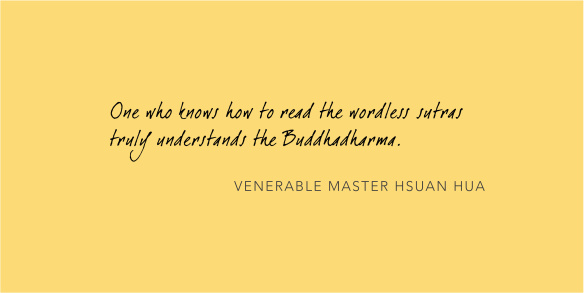I thought that, because of the focus on meditation and introspection, Buddhists aspired toward a relatively passive, detached way of experiencing the world.
When I knew very little about Buddhism, I misunderstood it in a way that is not uncommon in the West. I thought that, because of the focus on meditation and introspection, Buddhists aspired toward a relatively passive, detached way of experiencing the world. In fact, Buddhist practice confronts reality straight on in the only place we’ll ever experience it: our minds.
It is not particularly revolutionary to point out that each of us lives exclusively within our own consciousness. Every single moment of experience occurs within the never-ending stream of perceptions, thoughts, feelings and memories that make up our own specific awareness, as anyone who gives it a moment’s thought can easily see. Going further, we’ll even acknowledge that we each possess a mysterious unconscious that affects our day-to-day experience in ways we don’t understand.
At this point, you may feel a strong urge to change the subject, fast. Otherwise you might find yourself wondering—um, isn’t that kind of important? Just how significant are these mysterious unconscious effects? What exactly is my subconscious up to, anyway? Read More …
In a lecture on the
Sixth Patriarch Sutra awhile back, there was a line that described perfection as limitless.
Marty told a story about his days cultivating at Gold Mountain Monastery, and how this line about limitless perfection reminded him of a 9-year-old monk who asked Master Hua, “What if you’re already enlightened?”
Master Hua had replied, “Then you must become an arhat.”
But the monk pressed on, “What if you’re already an arhat?”
“Then you become a bodhisattva.”
“And if you’re already a bodhisattva?”
“Then you become a Buddha.”
[At this point, Marty chuckled a little, remembering how steadfastly the young monk was towards reaching a final, definitive answer, a grand finale to his debate. He described, “It was as if he were playing a chess match.”] Read More …

Raking leaves during Autumn in the monastic grounds
[Admin’s note: This post is out of sequence due to Admin error. Much apologies!]
Today marks the beginning of my second week as a volunteer and student at the City of Ten Thousand Buddhas. I’m just starting to feel settled in, having found some work to do so that I can make a contribution to the community. One of the monastic trainees tells me that the City is like a jigsaw puzzle: every person has their own contributions to make, and like the pieces of a puzzle, all the gifts fit together to form the working community.

Then we compost the piles of leafs for the organic farm
The dorm teacher here helped me find a little yard at one of the houses by the farm, where I can work in the morning. So for the past three days after morning ceremony, I’ve been raking up the leaves in the yard and piling them on one of the fallow fields at the farm. I see the work itself is an integral part of my practice and study here. Much like meditation, raking is simple, useful work that calms the mind and helps me focus. Also like meditation, it can either be terribly boring, or it can be very peaceful and pleasant, depending on what your attitude is like.
Read More …

A huge smile
(spread across oceans of time)
breaks free from
solitary
ho-hum meander
of the day.
Sing like birds soar
silent, still.
A wandering song
echoes
through the caves of your mind Read More …

The symbols, structures and beliefs we use to organize and sedate this endless river of impressions and habits are provisional and temporary illusions of stability.
Emotions, thoughts and perceptions are moving through our awareness in constant flux. The symbols, structures and beliefs we use to organize and sedate this endless river of impressions and habits are provisional and temporary illusions of stability. Culture, capital and social tribes all control the symbolic possibilities and attempt to suck the energy of each conscious flow into its ideological vortex. Most go willingly along and prove the scientific determinists and postmodern vampires right in their cynical attacks on existence. The absence of individual responsibility for the quality and content of our own conscious awareness follows this double blow from the high priests of culture. That the only attack on this foolishness and childish irresponsibility comes from feudal reactionaries and self-serving oligarchical proponents of economic individualism turns absurdity into human tragedy.
The tragedy is not only the economic, political and social paralysis and abject irrationality that has befallen humanity, but also the micro-tragedy of each individual consciousness that is lost in a sea of confusion and cynicism. Read More …

“’Serious’ art, which is not primarily about getting money out of you, is more apt to make you uncomfortable, or to force you to work hard to access its pleasures, the same way that in real life true pleasure is usually a by-product of hard work and discomfort…. The problem isn’t that today’s readership is ‘dumb,’ I don’t think. Just that TV and the commercial-art culture’s trained it to be sort of lazy and childish in its expectations.”
– David Foster Wallace, 1993
In the eighteen years since David Foster Wallace articulated this critique in an interview with Larry McCaffery, there have been massive, rapid changes in the way people communicate and access information. It seems fair to say that these technological transformations, for all their positive effects, have also exacerbated the problem that Wallace points to—it is now harder than ever to maintain the kind of sustained, committed attention that he thought necessary for truly satisfying experiences.
There’s so much that we could be paying attention to at any moment, that we tend to try to take in as much of it as possible by reducing everything to smaller pieces—videos to clips, albums to songs, e-mail to texts to tweets.
We are now constantly connected to work, to family and friends, and to endless possibilities for entertainment and information; it feels like there is always more going on than we could ever keep up with. With so much activity, and so little time to spare, how do we decide what’s worth our attention?
Increasingly, the words, ideas or images that hold our attention at all are those that promise not to hold it for very long. There’s so much that we could be paying attention to at any moment, that we tend to try to take in as much of it as possible by reducing everything to smaller pieces—videos to clips, albums to songs, e-mail to texts to tweets. In rushing to get a little bit of everything, we don’t actually get far enough with anything to feel very interested or satisfied—all the tiny random bits don’t add up to anything of lasting importance. Read More …
 This summer, Dharma Realm Buddhist University and Pacific School of Religion present a direct encounter with a living Buddhist tradition dating back to ancient China. Students will have the rare opportunity to experience the daily pace and patterns of a Buddhist contemplative and explore a way of life designed to instill peace, equanimity, and awakening. [Learn more.]
This summer, Dharma Realm Buddhist University and Pacific School of Religion present a direct encounter with a living Buddhist tradition dating back to ancient China. Students will have the rare opportunity to experience the daily pace and patterns of a Buddhist contemplative and explore a way of life designed to instill peace, equanimity, and awakening. [Learn more.]

About thirty students from Humboldt State University came to visit the City of Ten Thousand Buddhas last weekend, to participate in the monastic lifestyle as an educational experience. I was asked to guide the group around campus, and I also sat in on the Q&A sessions that the Ciity held for them, so I had a great opportunity to field questions about Buddhism—and the students had lots of tough questions to ask—everything from “So, if sexual desire and rebirth are a problem, what about birth control?” to “Buddhists are so individualistic, so what do they think about Anarchists?” to “Have you considered that Buddhist views on gender might just be cultural constructions?”
In hindsight it’s actually pretty funny to be put on the spot as the token “Buddhist” when I have a lot of the same questions. In the moment, though, it was fairly terrifying. Read More …
 SHARE
SHARE EMAIL
EMAIL COMMENT6 comments
COMMENT6 comments 







 This summer,
This summer, 